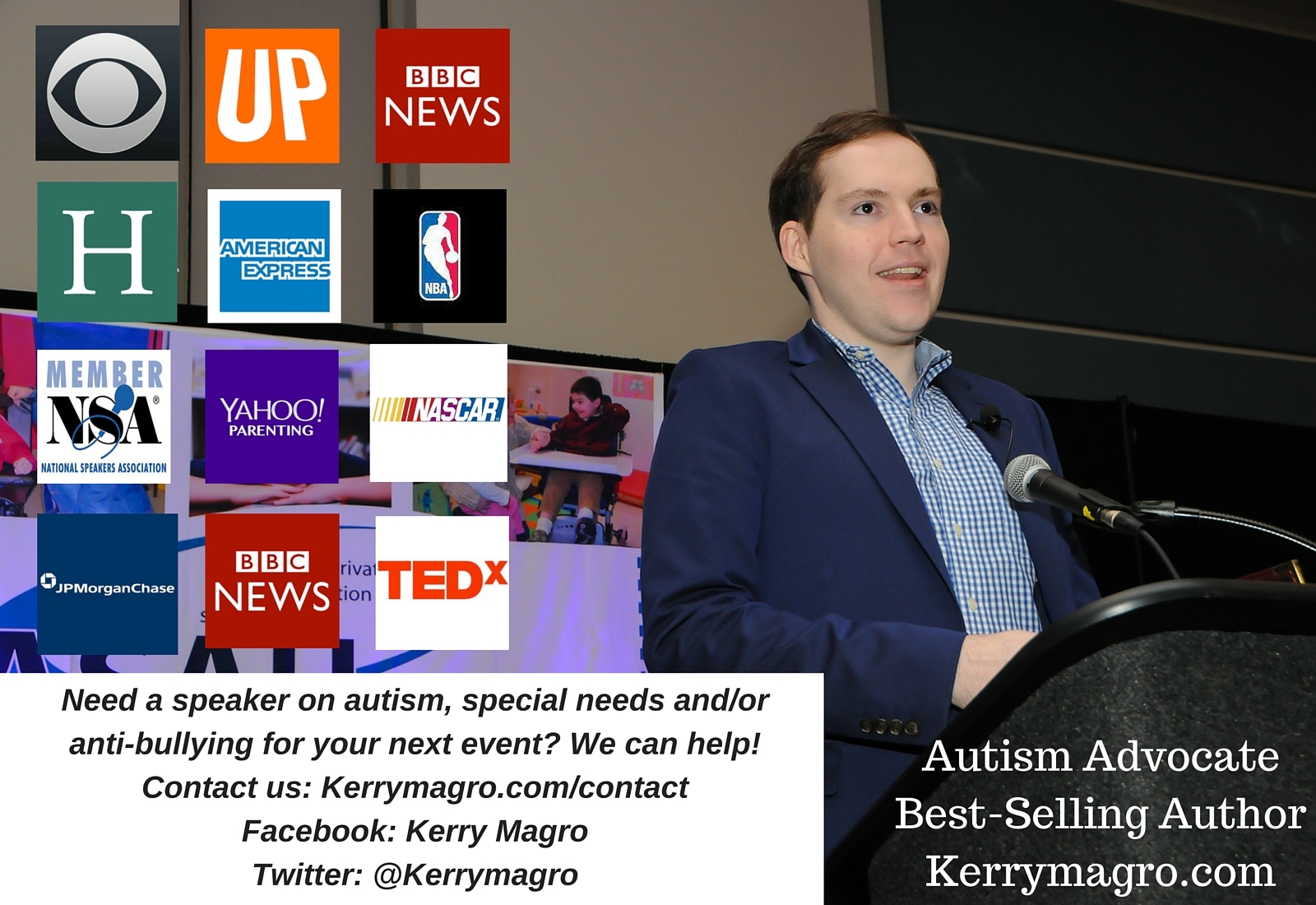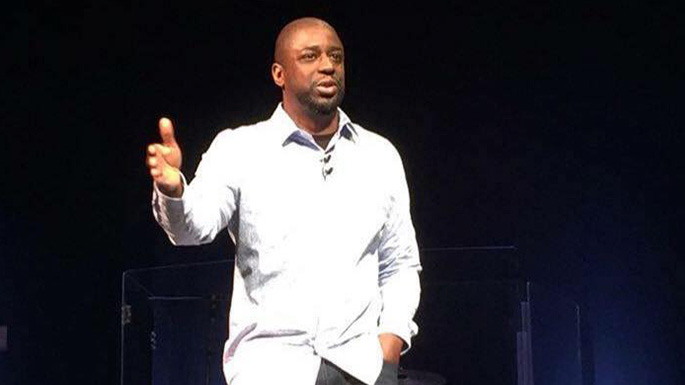This guest post is by Dr. Lamar Hardwick who is a husband, father of three, and a pastor. After years of struggling with social anxiety, sensory processing, and other related issues, Lamar was diagnosed with autism in 2014 at age 36. Today he uses his platform as a community leader to be an autism advocate helping to create awareness, encourage acceptance, and mentor young advocates. You can read more from him at www.autismpastor.com.
April was Autism Awareness month, but it’s only a month. When April is over sometimes the awareness goes with it. When April is over sometimes the inspiration disappears. When April is over sometimes autism acceptance becomes less important.
I know that to be true because just two years ago all April 1st meant to me was April Fools day. April had very little significance and autism awareness was not something that captured my full attention much less inspired me to contribute to the autism community. All that changed in December of 2014. After years of silently and sometimes not so silently, struggling with many issues I mustered up the courage to investigate the source of my struggles and my investigation led me to seek professional help. In 2014 at age 36 I was diagnosed with ASD.
The last two years of my life have been a journey toward both self-discovery and self-advocacy and I as I have slowly stepped out of the shadows I am continually gaining the comfort and confidence to add my voice the valuable discussion about autism in our communities. My diagnosis did not come in a vacuum. I had a unique story. I had a complicated and mysterious history. Most importantly at the time of my diagnosis I had a family and a career. Although I continue to have my share of silent struggles, I have been able to experience some success in navigating the world of autism as an adult even before I was fully aware of my diagnosis.
As a result of my perceived success in life one of the most common comments I receive from others because of my transparency and openness about my life is fairly common among people with disabilities. “You’re such an inspiration.” While there are times that I am at awe that my life is an inspiration to anyone, there are other times that I understand that my responsibility is to inspire. I am a pastor and with that profession comes the responsibility and drive to inspire people to something greater. My personal mantra, and one I share with my congregation is to learn how to focus less on what you want to over-come, and instead spend time focusing on who we want to be-come.
So while April’s are filled with inspiration and awareness. April will end in a few days and I know that part of my role, as an autism advocate is to inspire our society and culture to become better supporters of the autism community. With that being said, I want to share four ways that I would like my life and my story to inspire you to not just applaud what I have seemed to over-come, but how my life and story should inspire you to discover who and what you can be-come.
-
Become more aware
Since being diagnosed with autism spectrum disorder I’ve learned a lot about myself, but even more importantly I have learned a lot about why I knew nothing about myself for so many years. Since being diagnosed I have been confronted with stereotypes about autism, stereotypes that I believe are the reason why so many other adults, minorities, and young girls go undiagnosed.
I had very little education about what autism actually is. Autism has received a lot of attention in the last decade, however the harsh reality is that there are still millions of people who don’t know nearly enough about autism, what it is, and how it affects people. I should know, I was one of those people and until I was diagnosed most people I had a personal relationship with knew very little about autism.
Autism awareness is important, but the type of awareness I would like to inspire you to is the type of awareness that doesn’t simply acknowledge the existence of autism, but instead seeks knowledge about autism. Autism is a spectrum; so many people are affected in many different ways. Educate yourself about autism by asking questions from the people who are really living with autism. Autism awareness should be about expanding people’s exposure to the life of autistic people. That can’t be done with statistics; it can only be done with stories. Ask questions. Assume nothing. Aspire to become more aware.
-
Become more accepting
My line of work makes me somewhat of a public figure. One of the primary reasons I disclosed my diagnosis to my entire church and community was the understanding that my platform as a pastor should be used to help the community learn how to embrace all types of diversity. Neurodiversity is a concept where neurological differences should be recognized and respected as any other human variation. Simply put the autistic mind in many ways works differently than a “neurotypical” mind but the differences should not be used as an opportunity to assume any level of deficiency in those minds that are atypical. If my life is to be an inspiration to you, let it inspire you to be more accepting of those who think, process, and live differently than you. Becoming more accepting of autistic people includes accepting all of what makes them who they are. In a world that struggles with intolerance and indifference to those who are different, my hope is that if I do inspire you in anyway, it is to inspire you to realize that often times in order to make a difference you have to be willing to BE different. Autistic minds are very different, but when given the right opportunity we can make a huge difference in the world for the better.
-
Become an advocate
I was once told to never allow my life to be defined by either the applause of my fans or the attacks of my critics. It’s one of the most profound pieces of advice I’ve ever received. As a pastor I acknowledge those who applaud me, and I take careful consideration to those who attack me, but I am motivated most by those who advocate with me. Nothing communicates my ability to inspire you more than the creation of another voice that commits to becoming a champion for the cause for which I myself am committed. Real inspiration happens when you move from merely being an admirer to being an advocate. Advocate not because I need a voice to speak for me, advocate because my voice has inspired you to join with me and so many other voices speaking on behalf of the autism community.
-
Become more active
Autism awareness is a great start. Allowing stories like mine to inspire you does enough to turn your attention to the issues involving the autism community, but if you really want to be inspired by my life, be inspired to be active and not reactive. Being actively involved in the autism community and their various needs starts by finding meaningful ways to engage in May when Autism Awareness Month is over. From May to March be active and stay active. Three ways to actively engage in the issues facing the autism community are policies, programs, and platforms. Find out which state, local, national, and insurance policy issues most affect the autism community and find out how to make your voice count as an advocate for those on the spectrum. Research or create programs at the local and national level that are doing work to assist and provide support for autism spectrum individuals and families. Finally use your platform to educate, empower, and encourage change. Everyone has a platform that they can use to do as much as possible to make an impact. You can’t do everything, but you can do something.
If you really want to be inspired by my story of perseverance hope, and courage that’s ok, but don’t just be inspired by what I have over-come, be inspired to help our society focus on what it should be-come. Let’s do this together. Let’s change the world.
You can read more from Lamar at www.autismpastor.com















